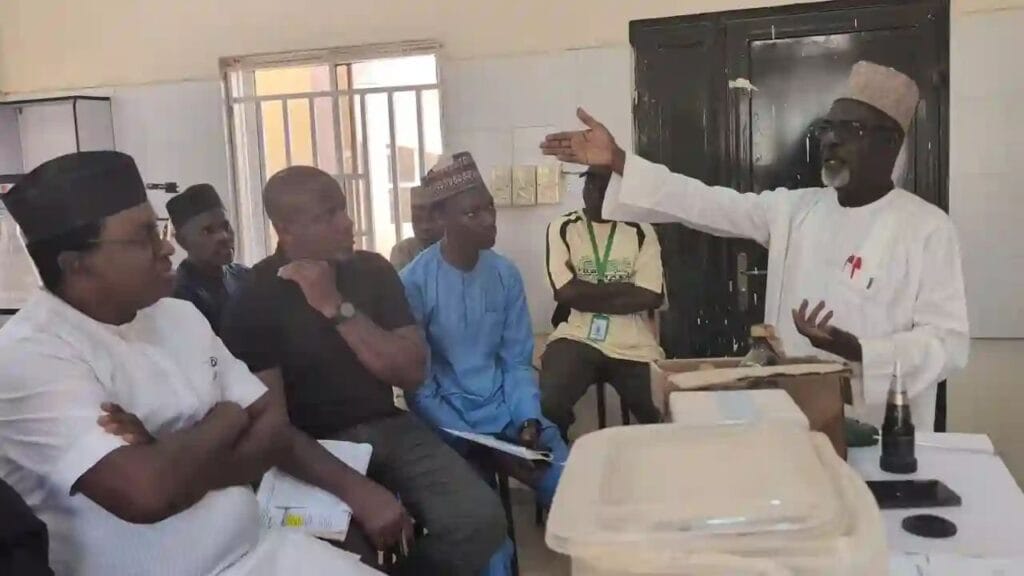The Kano Agro-Climatic Resilience in Semi-Arid Landscapes ACReSAL received a team of consultants engaged by the ACReSAL project to support its efforts in assessing the project interventions under Component C across the participating states.
The team, led by Dr. Paul Andrew Gwaza, met with key staff of the State Project Management Unit (SPMU) and shortly afterward headed out to visit the project intervention sites within the State Metropolitan area.
Kano-ACReSAL Constructs Five Additional Solar Boreholes
The team has interfaced with beneficiary institutions, inquiring about the nature of the interventions provided by the project, expectations regarding quality and quantity, as well as the proper utilization of the support by the beneficiary institutions.
The team gathered a range of statistics on beneficiaries and hectares recovered and provided guidance and recommendations on maximizing the benefits of the support received.
Kano ACReSAL Opens Bid For Bulbula-Gayawa gully Erosion Project
The mission aimed to assess the milestones achieved under Component C of the ACReSAL project, “Institutional and Policy Strengthening.” Under this component, the ACReSAL project prescribed opportunities to strengthen weak institutions and policies using both material and non-material resources.
During the visit, the team visited the State Ministry of Environment and Climate Change to assess the impact and sustainability of the 2023 Drainage Clearance Support, the Sponsoring of the Climate Change Policy, and the procurement of 10 tractors and 2 payloaders for the Refuse Management and Sanitation Board (REMASAB) under the Ministry.
The team also visited a Soil and Water Quality laboratory refurbished by the project at North West University Kano.
African Institute of Waste Management Recognizes Kano ACReSAL
Agro-Climatic Resilience in Semi-Arid Landscapes (ACReSAL) is a World Bank-financed project designed to tackle the pressing issues of land degradation and climate change in 19 states of Northern Nigeria and the Federal Capital Territory (FCT).
The project comprises four key components and is scheduled to run for six years, ending in 2028.





